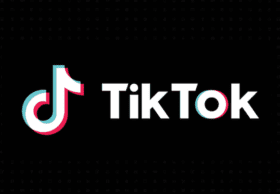By Charlene Weisler
 Disruptions in the media industry occur constantly. But now it seems that the speed of disruptions, even among disruptors themselves is accelerating. The ARF noted that according a recent study by Axios, video games, which has disrupted media consumption, are undergoing a major usage/business change as well and the change is occurring not just on the software/content but also on the hardware of consoles and controllers.
Disruptions in the media industry occur constantly. But now it seems that the speed of disruptions, even among disruptors themselves is accelerating. The ARF noted that according a recent study by Axios, video games, which has disrupted media consumption, are undergoing a major usage/business change as well and the change is occurring not just on the software/content but also on the hardware of consoles and controllers.
Packages Instead of Single Games
Economics are shifting in favor of the consumer. In the past, gamers had to purchase a game outright. Now they are able to subscribe to a more economical package of games. “In the past, you plunked down $60 at GameStop for a copy of Grand Theft Auto or Madden NFL and played it out — after which you could trade it in or let it gather dust,” the AP News reports. “Now, you’ll increasingly have the choice of subscribing to games, playing for free or possibly just streaming them over the internet to your phone or TV.” Gamers won’t have to buy individual games anymore. And presumably the cost of entry for gaming companies would be lower
Veering Away From Specialized Hardware
Subscriptions will not only move storage and software into the cloud, it will make access easier across any device and be cheaper since there will not be a requirement to buy any extra equipment, which is often expensive and may only work specifically for certain games.
Examples of games moving into the cloud include Google’s Stadia platform that, “will store a game-playing session in the cloud and let players jump across phones, laptops and browsers with Google’s software,” per the AP. Apple Arcade “subscribers will get to play more than 100 games … on the Apple-made iPhone, iPad, Mac and Apple TV.” Snap Games will allow users to play real-time, multiplayer games with their friends, with new ad experience in games so all that “our (developer) partners can see monetization from day one.” And with Fortnight, a free-to-play game, “a key aspect of the game is being able to play it on anything from your phone to a decked-out gaming PC.”
It remains to be seen how quickly this transformation will occur. There is still the need for technology companies to broker deals with game developers to distribute their games. But, as with other media, the consumer is increasingly setting the pace and voting with their wallets. “We’re in an environment where people want content and media when they want it, how they want it,” CFRA analyst Scott Kessler said. “You can play a great video game with a console or on a computer or with a mobile device and you might not have to pay anything. That’s a dramatic departure from even a few years ago.”






